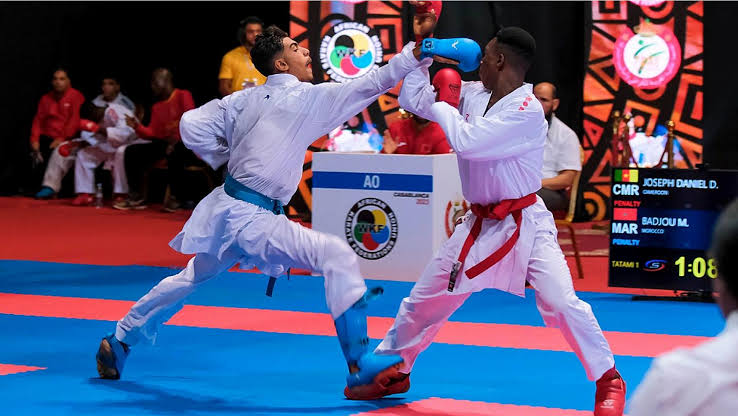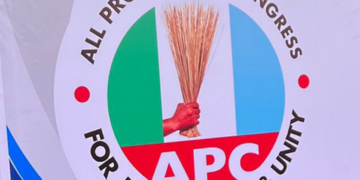Delegates from across Africa and beyond, including officials from the World Karate Federation (WKF) led by its president, Antonio Espinós, have gathered in Abuja for the African Karate Federation’s Annual General Assembly (AGA), which commenced today at the African Continental Hotel.
The General Assembly coincides with this year’s UFAK Karate Championships, which began on Monday at the Velodrome and Media Centre of the Moshood Abiola National Stadium, with technical sessions for Referees, coaches, and judges respectively.
The General Assembly meeting will review karate’s achievements on the continent and outline future directions for the sport in Africa.
In an exclusive interview with LEADERSHIP Sports on the sidelines of the technical sessions for referees, coaches, and judges at the Velodrome, Hajiya Zainab Sale, a board member of the Karate Federation of Nigeria (KFN) and a world karate judge, stated that the African Karate Championship for cadet, junior, and senior divisions will officially commence on Friday, 25th July, following the General Assembly and the conclusion of technical sessions.
“When we talk about the competition in general, we start from the courses and examinations taking place right now. So, basically, once the courses and exams are concluded, we will delve into the championship properly on Friday, the 25th of July. The General Assembly of the African Karate Federations is scheduled for tomorrow (today), and the world body has been invited to participate.”
A total of 1,000 athletes from 31 countries across cadet, junior, and senior divisions are expected to compete, continuing UFAK’s record of participation in continental events.
Beyond the medals, this event will showcase the significant progress of African karate.
The increasing number of participants and the high level of competition reflect the sport’s rapid growth and rising popularity across the continent.
This year’s championships follow last year’s UFAK Championships, held as part of the African Games in Accra, Ghana, where Egypt dominated the event, winning 15 medals, including 10 golds. Algeria secured 14 medals, with 3 golds, while Morocco took home 10 medals, including 2 golds.
With this year’s championships serving as the final qualifier for the world stage in Cairo, the stakes in Abuja are higher than ever. Athletes will not only compete for titles but also for the opportunity to represent Africa on a global scale.











